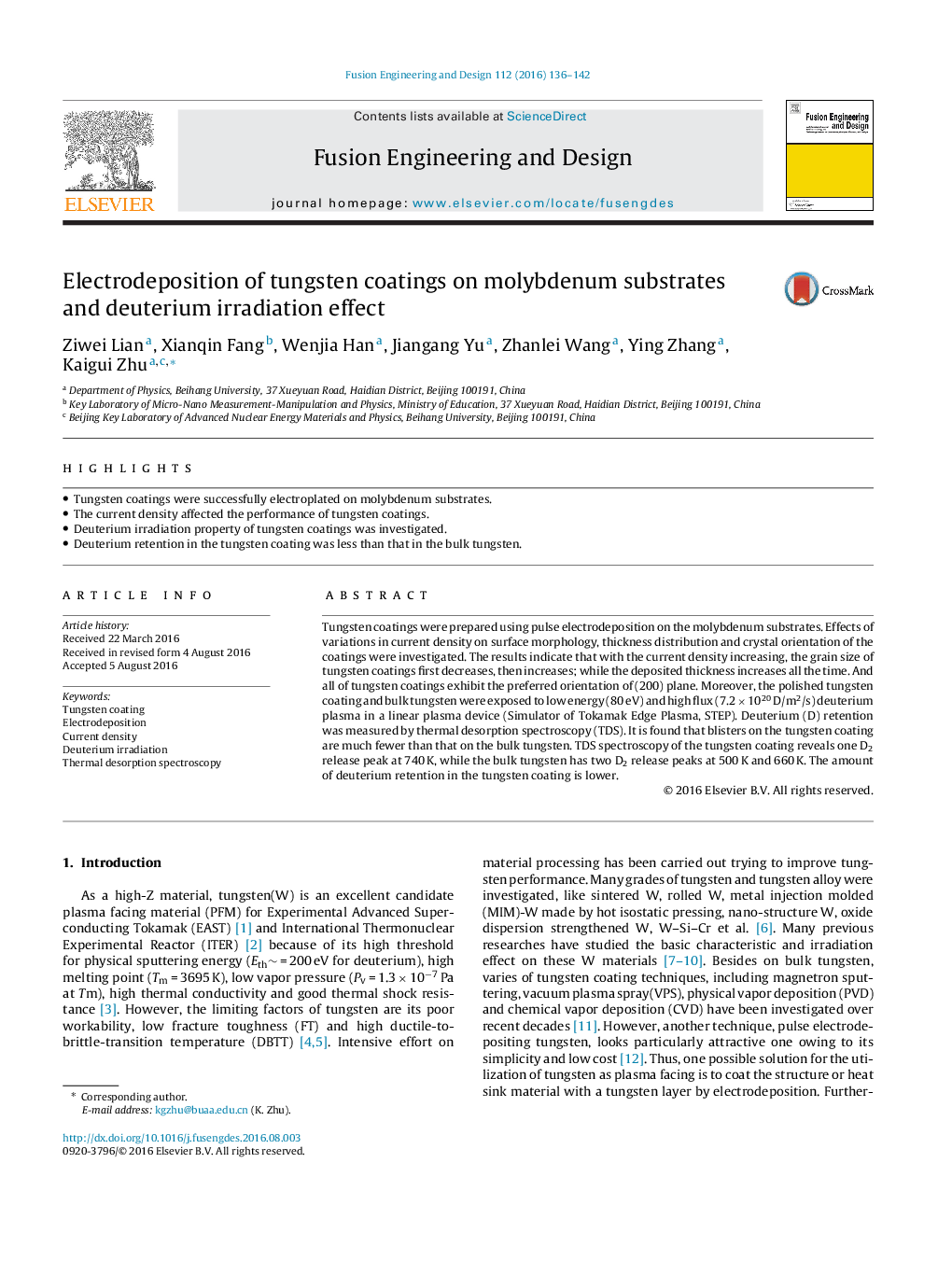| Article ID | Journal | Published Year | Pages | File Type |
|---|---|---|---|---|
| 6745378 | Fusion Engineering and Design | 2016 | 7 Pages |
Abstract
Tungsten coatings were prepared using pulse electrodeposition on the molybdenum substrates. Effects of variations in current density on surface morphology, thickness distribution and crystal orientation of the coatings were investigated. The results indicate that with the current density increasing, the grain size of tungsten coatings first decreases, then increases; while the deposited thickness increases all the time. And all of tungsten coatings exhibit the preferred orientation of (200) plane. Moreover, the polished tungsten coating and bulk tungsten were exposed to low energy (80Â eV) and high flux (7.2Â ÃÂ 1020Â D/m2/s) deuterium plasma in a linear plasma device (Simulator of Tokamak Edge Plasma, STEP). Deuterium (D) retention was measured by thermal desorption spectroscopy (TDS). It is found that blisters on the tungsten coating are much fewer than that on the bulk tungsten. TDS spectroscopy of the tungsten coating reveals one D2 release peak at 740Â K, while the bulk tungsten has two D2 release peaks at 500Â K and 660Â K. The amount of deuterium retention in the tungsten coating is lower.
Keywords
Related Topics
Physical Sciences and Engineering
Energy
Energy Engineering and Power Technology
Authors
Ziwei Lian, Xianqin Fang, Wenjia Han, Jiangang Yu, Zhanlei Wang, Ying Zhang, Kaigui Zhu,
